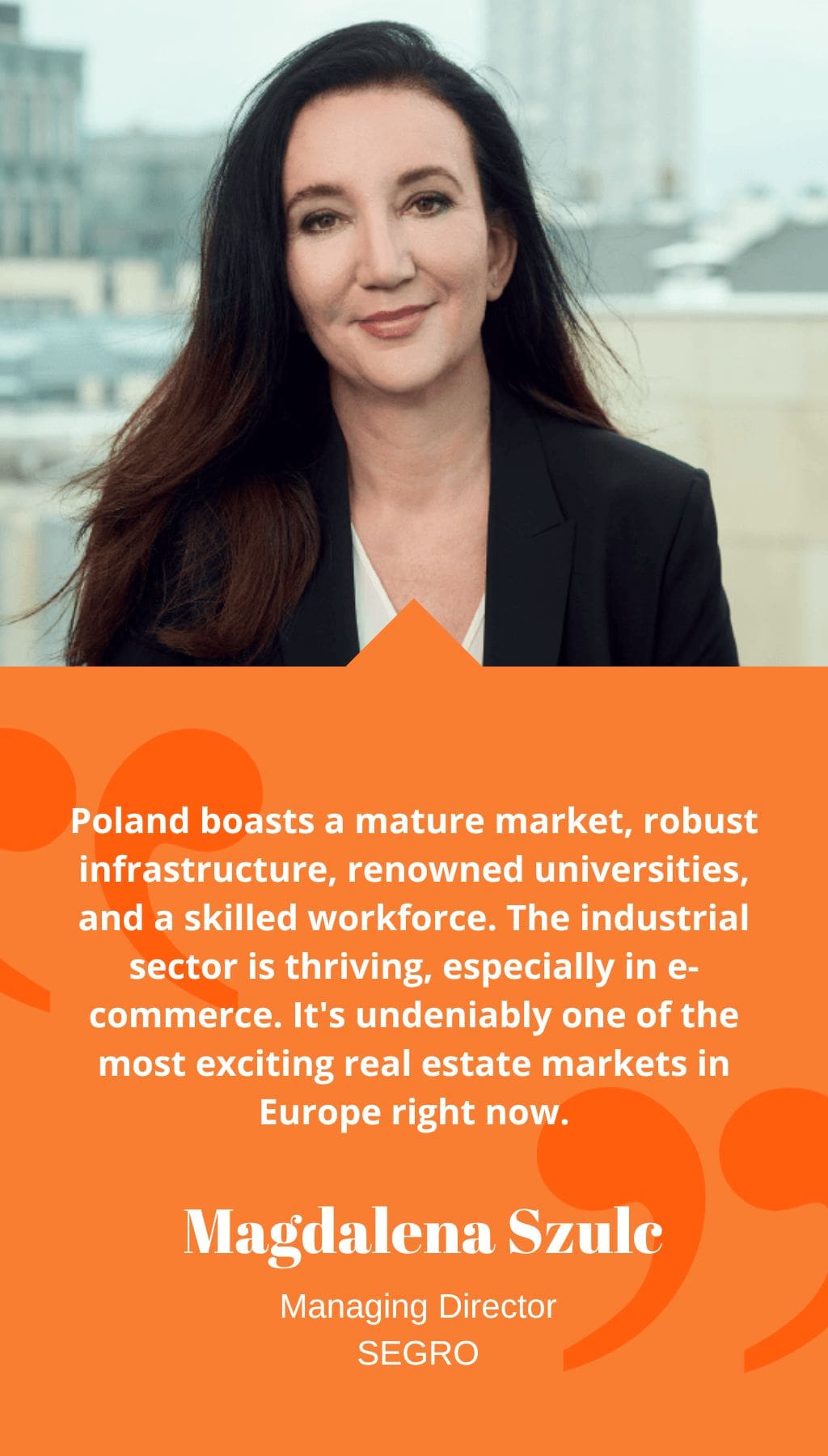
- Poland | 11 March 2021

Could you share your journey to SEGRO and your vision for the company’s presence in Central and Eastern Europe?
My tenure with SEGRO began in 2005 when the company entered the region through the acquisition of a Dutch firm where I was working. I come from a construction background that transitioned into real estate. Witnessing the evolution of the segment has been remarkable, especially within the industrial sphere. Initially, managing an industrial company as a woman was challenging due to the sector’s less-popular status, but perceptions have drastically shifted. Warehouses are now more sophisticated, technologically advanced, and integral to daily business operations.
What factors do you think contribute to the increased importance of the industrial sector, particularly during the global health crisis?
In CEE countries like Poland, post-communism, there was initial infrastructure instability. However, in recent years, GDP growth has soared, turning Poland into a manufacturing hub. Industrial spaces surged in demand, notably propelled by the rise of e-commerce, which was further accelerated by the pandemic.
How did the pandemic impact SEGRO’s operations, particularly concerning facility management and goods transportation?
Pandemic-induced changes led us to implement stringent sanitization and improve air circulation in our warehouses. We faced some delayed deliveries but managed the situation. Transportation logistics also required attention, but fortunately, no significant disruptions occurred.
What portion of SEGRO’s 8.8 million sqm footprint comprises Poland, and what types of facilities are in high demand?
In Poland, we manage 1.4 million sqm, making us the 3rd largest industrial space owner in the country. Most of our facilities are strategically located within or near cities, enhancing e-commerce, logistics, and production efficiency. Demand varies from SMEs seeking flexible spaces to larger entities in logistics, research, automotive, and pharmaceutical industries.
How does Poland’s potential compare to other regions you oversee in terms of opportunities?
Poland stands as the largest market in CEE with solid market fundamentals, prompting our expansion plans. We’re eyeing growth in the Czech Republic, particularly Prague, although securing suitable land there is proving challenging due to high competition and demand. However, our focus remains on strengthening our presence in both Poland and the Czech Republic.
With tightening EU regulations on carbon emissions, how is SEGRO adapting?
Our target is carbon neutrality by 2030, implementing upgrades across our buildings for sustainable impact. Plans include installing PV panels and electric car chargers across our Polish facilities to enhance sustainability.
What are SEGRO’s future ambitions regarding growth and diversification?
Our aim is to reinforce our position in Poland, focusing on urban logistics and investing in land, particularly in Warsaw. The urban logistics sector in this region remains underdeveloped, presenting substantial potential for expansion.
What’s your final message for potential investors eyeing Poland’s industrial real estate segment?
Poland boasts a mature market, robust infrastructure, renowned universities, and a skilled workforce. The industrial sector is thriving, especially in e-commerce. It’s undeniably one of the most exciting real estate markets in Europe right now.














